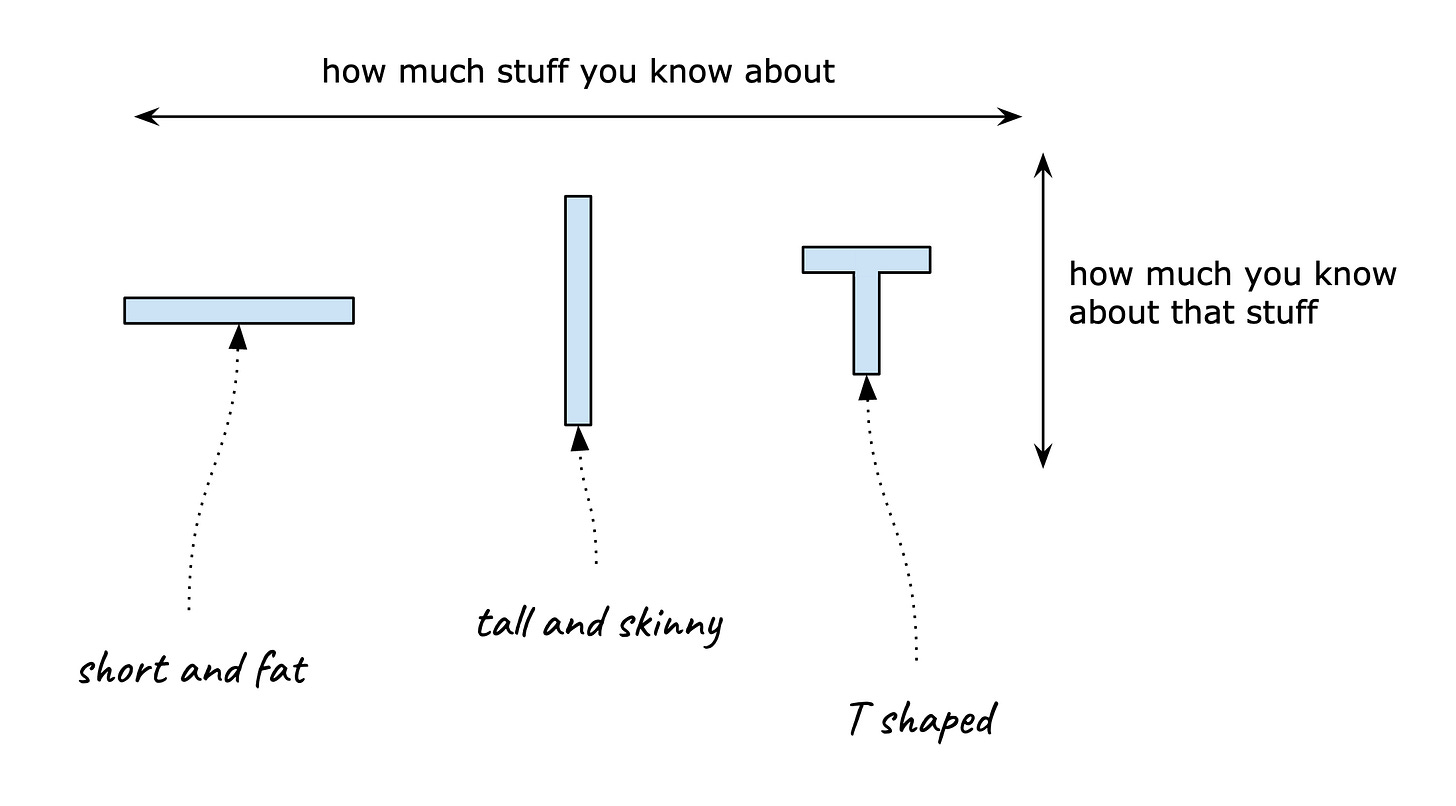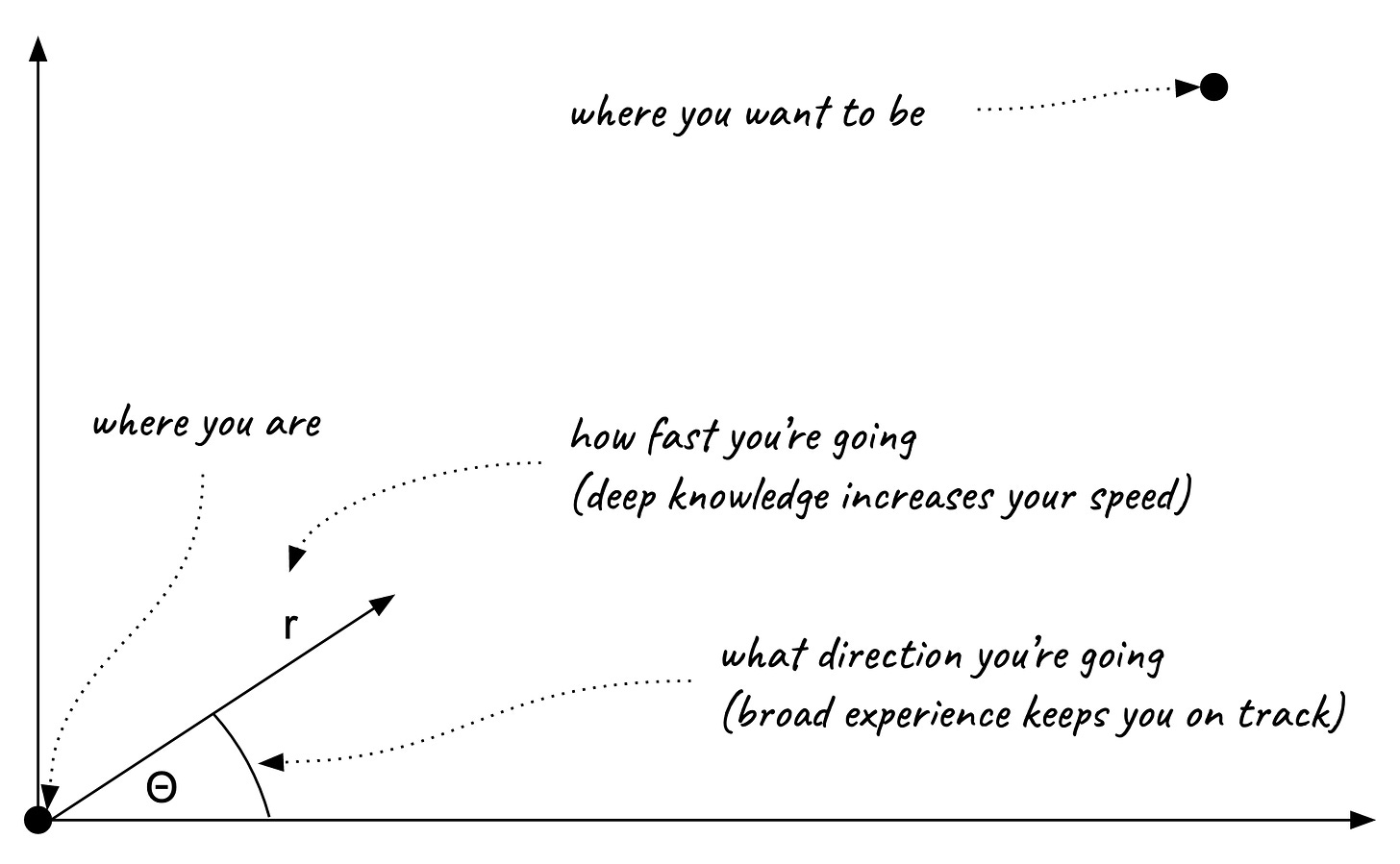Short Fat Engineers Are Undervalued
Professionals supposedly come in two shapes: either short and fat, or tall and skinny, meaning their skill set is either broad or deep. They can also be T-shaped—knowing a lot about a little and a little about a lot—but in this metaphor, that’s a compromise. After all, even a T need not have a 1:1 aspect ratio.
Should we prefer either dimension over the other when studying or hiring? Both dimensions can be useful; but breadth gives us perspective, and thus wisdom. On a long enough time line, wisdom is always more valuable than knowledge.
Depth helps you move fast, but breadth helps you move in the right direction. Consider the starting point of your current long-term project to be the origin of a Cartesian plane, and your goal to be a point elsewhere on the plane. Now consider r and Θ to be the radial coordinates (magnitude and direction) of your progress vector. Folks with deep experience can boost r, but only those with breadth can effectively steer Θ.
If you know exactly what you need, and you need it right now, choose depth. There’s nothing wrong with being or hiring an expert. As Bruce Lee supposedly said (though I can’t find the origin of the quote), “I fear not the man who has practiced 10,000 kicks once, but I fear the man who has practiced one kick 10,000 times.” Just understand what you’re buying, and what you’re not.
Tech workers, probably more than anyone but musicians and athletes, are pushed to sacrifice breadth for depth. Someone with deep knowledge of a single topic is lauded as an expert, no matter how ignorant they are in every other regard, while someone whose skills run broad but not deep is considered a jack of all trades and master of none. Even at startups where folks proudly wear many hats, those with the widest range of prior experience are rarely invited to take the helm. They’re seen as utility players—junior in every department.
We so often overvalue knowledge, and undervalue wisdom, because knowledge is relatively easy to test, but wisdom is hard. We can’t see what Winston Churchill is made of until the Blitz starts. But if our journey will be long and arduous, that’s the person we need: the one we can follow because they won’t get us lost. The one who can tell us, when we’re going through hell, to keep going.
Intangibles, by definition, are hard to put a price on. But if you’re investing in someone for the long haul—especially if that someone is yourself—and you care more about where you’re going than how fast you get there, always favor breadth over depth.


